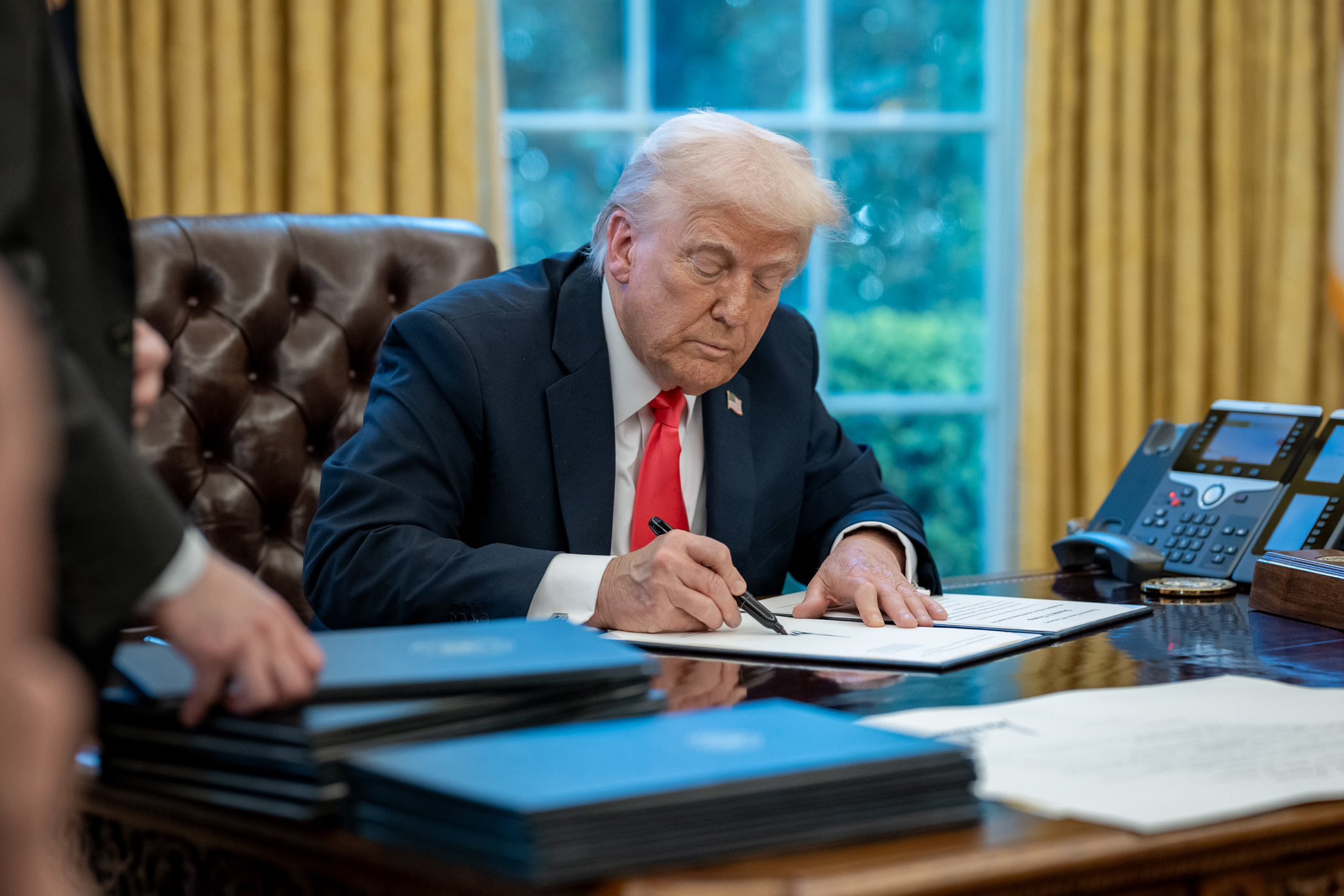In a surprising reversal, U.S. President Donald Trump has now pledged support for the Kenyan-led Multinational Security Support Mission (MSSM) in Haiti, a move that comes after his administration’s earlier decision to freeze U.S. humanitarian aid to the beleaguered Caribbean nation.
The U.S. Department of State, through spokesperson Tammy Bruce, announced the shift in policy on April 14, 2025, citing discussions between the Secretary and Deputy Secretary of State with Barbados Prime Minister and CARICOM Chairman Mia Mottley as a key factor.
The statement also included a strong condemnation of any actions aimed at destabilizing Haiti’s Transitional Presidential Council, currently led by President Leslie Voltaire.
Here are the key reasons behind Trump’s apparent change of heart:
1. CARICOM Influence
The direct engagement of Prime Minister Mia Mottley, a prominent figure within the Caribbean Community (CARICOM), appears to have played a significant role in swaying the Trump administration.
The U.S. explicitly stated its support for CARICOM’s efforts, signaling a willingness to align with regional priorities.
2. Recognition of MSSM’s Importance
The statement from the State Department acknowledges the critical role of the Kenyan-led MSSM in “assisting the government in its efforts to bring peace and stability to Haiti in the face of armed criminal gangs.”
This suggests a recognition of the mission’s necessity and Kenya’s leadership in addressing the crisis.
3. Regional Stability Concerns
The U.S. condemnation of actions destabilizing Haiti’s Transitional Presidential Council indicates a broader concern for regional stability.
The Trump administration appears to be prioritizing a unified approach with regional partners to prevent further deterioration of the situation in Haiti.
4. Reversal of Previous Policy
The decision marks a significant U-turn from President Trump’s February 2025 executive order, which suspended U.S. humanitarian aid for 90 days, effectively freezing $13.3 million in committed funds to the MSSM trust fund.
This earlier move had drawn criticism and left the mission’s future in doubt, prompting intervention from the UN.
The initial funding freeze, confirmed by UN Secretary-General’s spokesperson Stephane Dujarric, had threatened to derail the MSSM, a mission the U.S. had actively encouraged Kenya to lead, pledging $300 million in support after failing to secure Canadian participation.
The Trump administration’s newfound support signals a renewed commitment to the MSSM and a collaborative approach with CARICOM and other regional governments to address the complex security and humanitarian crisis in Haiti.

